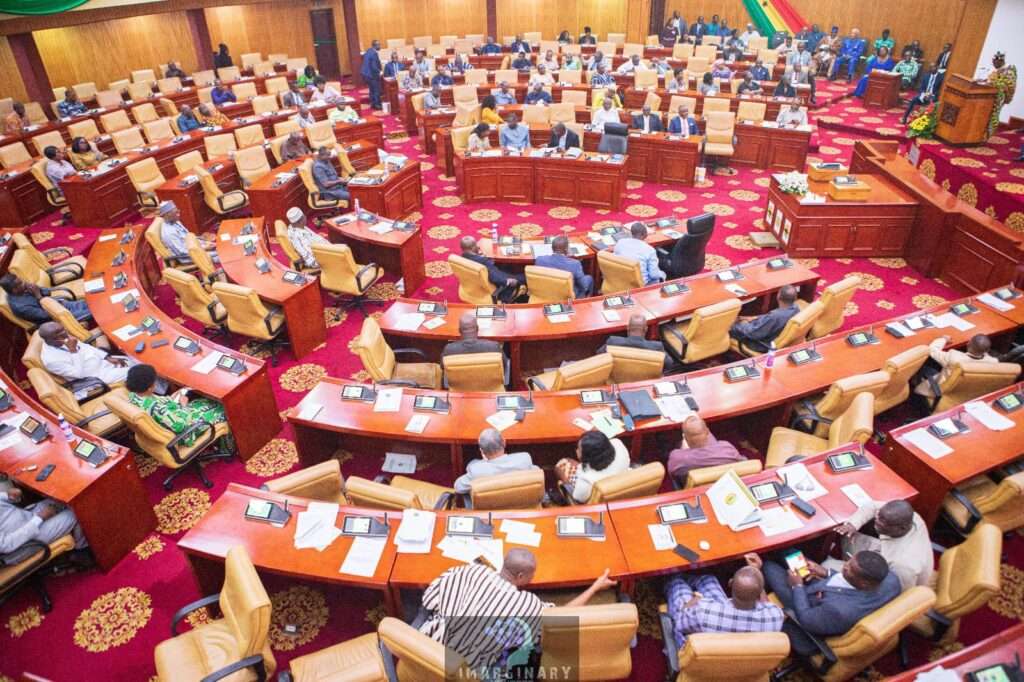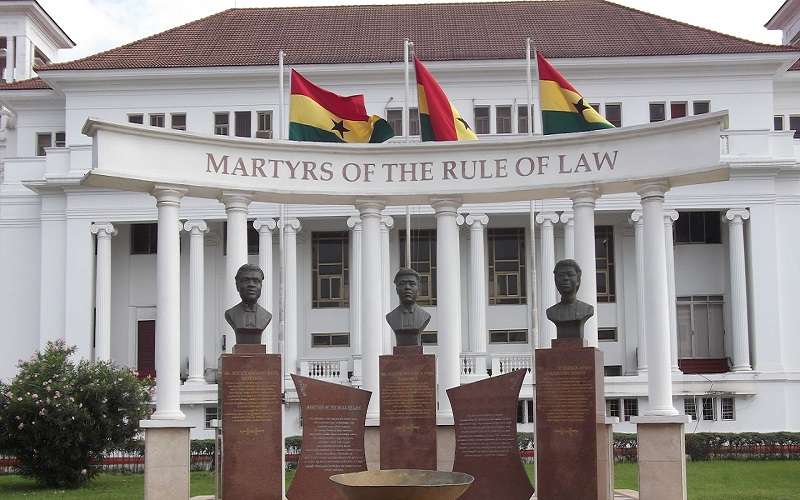Dr. Justice Srem-Sai, an astute lawyer, has noted that the Supreme Court’s order to “stay” the Speaker’s declaration of four vacancies—and its subsequent impact on numbers and caucus positions—is problematic.
Srem-Sai noted that some lawyers interpret court orders very literally. They might argue that the Supreme Court’s order is moot, attempting to “stay” what has already occurred.
He stated that, however, to interpret the order correctly, it should be read alongside Afenyo-Markin’s complaint to the Court.
According to Srem-Sai, this perspective suggests that the order instructs Parliament to reverse the situation, allowing the four MPs to resume their duties fully while the Supreme Court investigates Afenyo-Markin’s allegation. “I prefer this second meaning of the order”.
“A court order may be self-executory or non-self-executory. It is self-executory if it comes into effect without further action by anyone. Non-self-executory orders require someone to take an action to have the order come into effect.
“Often, self-executory orders apply to things that are yet to happen – they are capable of being stopped. They require ordinary injunction. Non-self-executory orders, on the other hand, apply to things that have already happened – they cannot be stopped. They can only be reversed”.
Dr. Justice Srem-Sai
Srem-Sai further explained that the court order necessitates a mandatory injunction; it is not self-executing and requires a reversal rather than merely a stoppage.

He remarked that because the Speaker’s declaration has already been issued, resulting in the former Majority becoming the Minority and vice versa, the Supreme Court’s order can only be fulfilled through a reversal, not just a simple “stay.”
Srem-Sai indicated that in this context, the court order mandates action from Parliament—specifically, a reversal of the current situation—to restore the original status quo.
Accordingly, he maintained that such a reversal is essential for addressing the changes that have already occurred and ensuring proper adherence to the Court’s directive.
Srem-Sai on Quorum and Parliamentary Action
Furthermore, Dr. Justice Srem-Sai emphasized that Parliament must make a decision to act, but it can only do so when properly constituted. “This is where the quorum comes in”.
He explained that Parliament’s inability to act on the court’s order is due to the fact that, although a quorum was present to start a sitting, there were not enough members to make a decision, preventing compliance with the Supreme Court’s order.
“A court order no matter how bad should, unless or until set aside, be complied with. That’s the law, I think. To comply with the Court’s order, however, Parliament must, first, be properly constituted”.
Dr. Justice Srem-Sai

Accordingly, Srem-Sai argued that because Parliament was not properly constituted for decision-making and could not refuse to comply with the Court order, the Speaker had no choice but to adjourn the sitting.
He indicated that this adjournment is necessary to ensure that Parliament can fulfill its obligations under the law.
He emphasized that the sitting would remain adjourned until the Minority is prepared to enter the Chamber.
According to Srem-Sai, the Majority’s participation is crucial for forming a quorum, which is essential for making any decisions regarding the Supreme Court’s order.
As such, he indicated that until a sufficient number of members are present to allow for a proper vote, Parliament cannot take the necessary steps to reverse the situation.
This underscores the importance of achieving a fully constituted assembly to uphold the rule of law.
Meanwhile, the NDC caucus in Parliament has stated that it will be prepared to return if the Speaker calls for a sitting, indicating their willingness to engage in the legislative process once a quorum can be established.
The NPP caucus also expressed its appreciation for the Speaker’s decision to adjourn Parliament, commending him for adhering to the court’s order and recognizing the importance of following due process.
READ ALSO: Lloyds Banking Group Supports Labour’s Pro-Growth Budget Agenda























